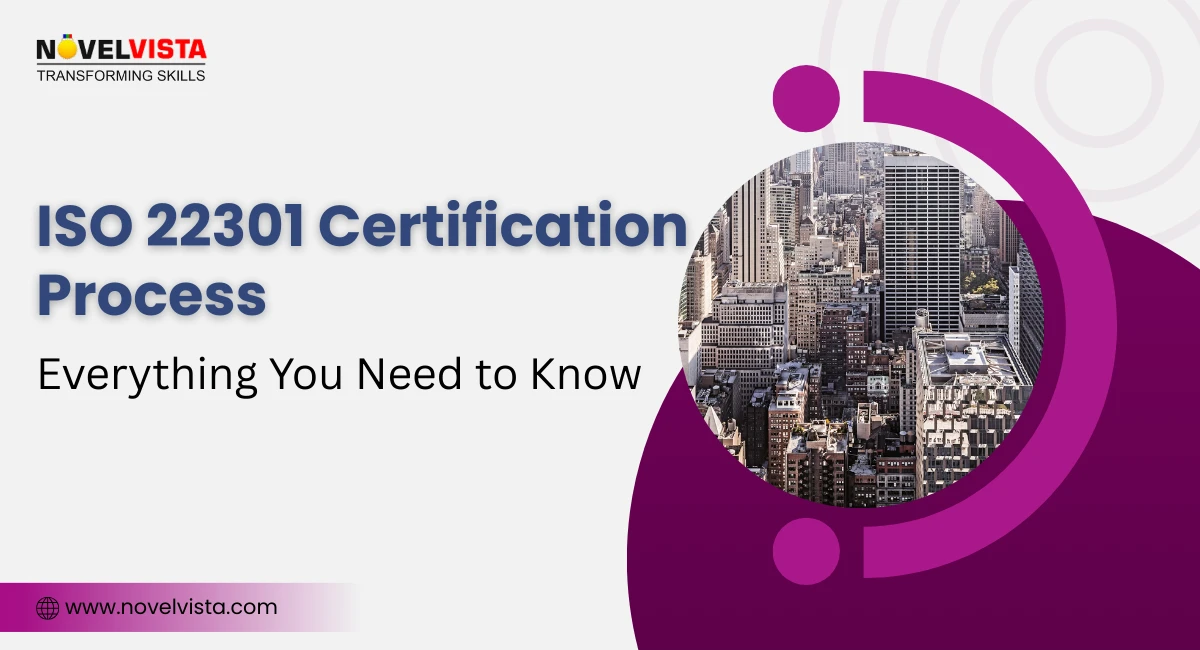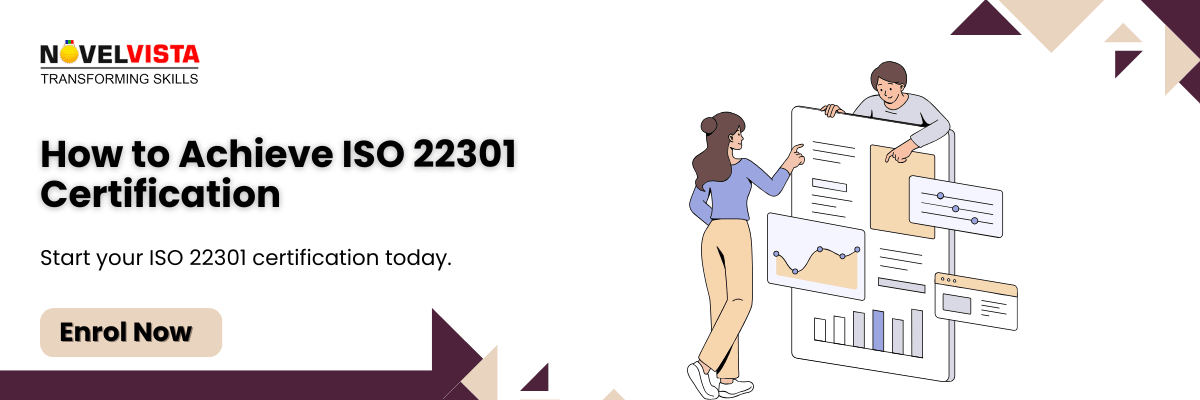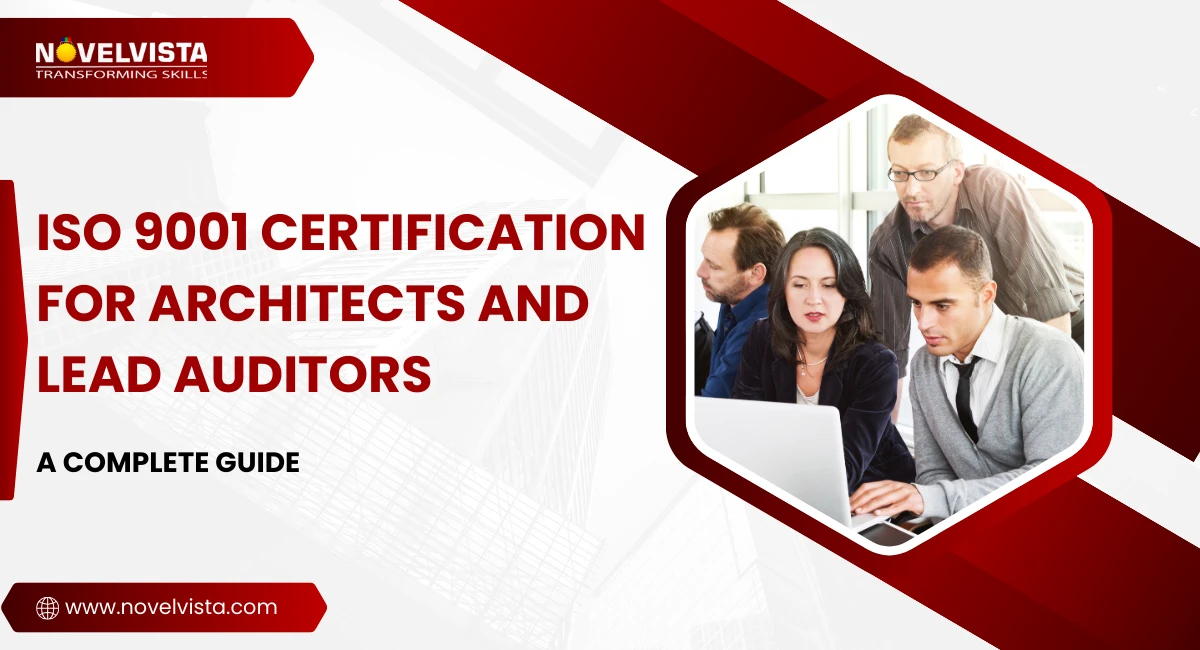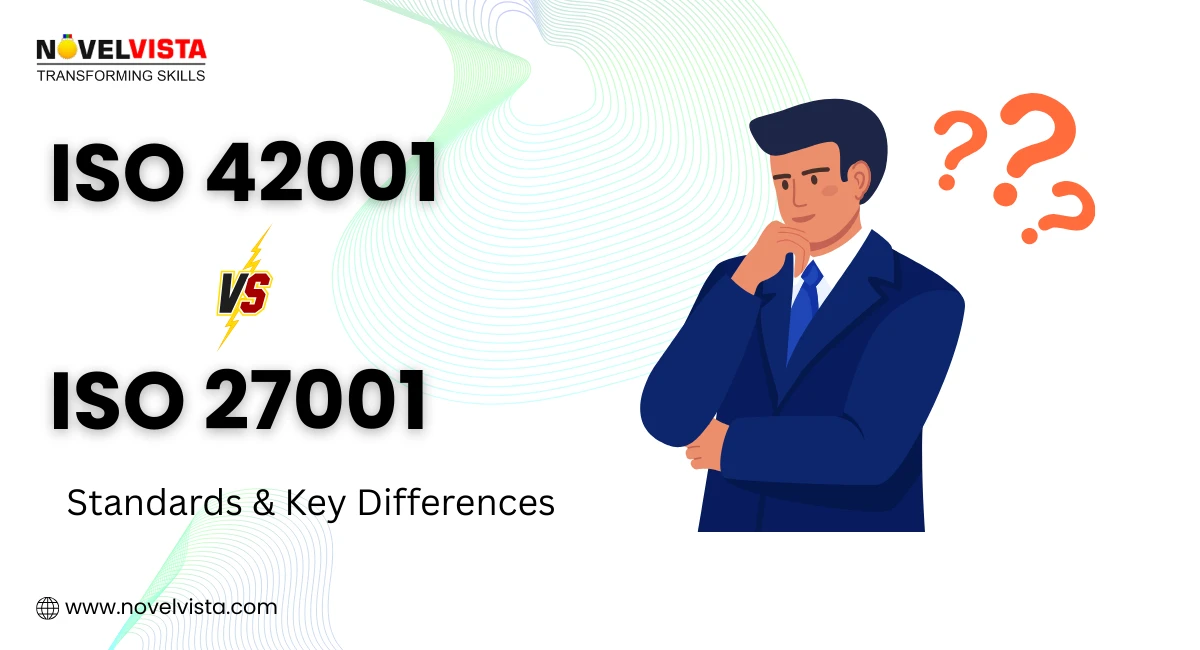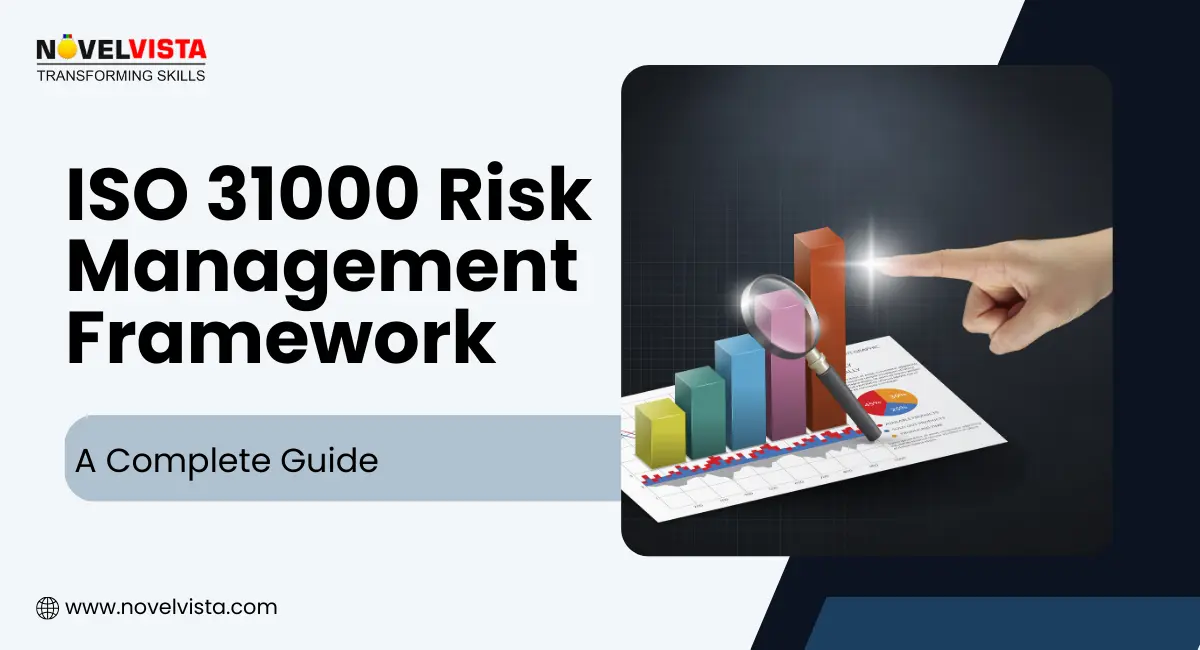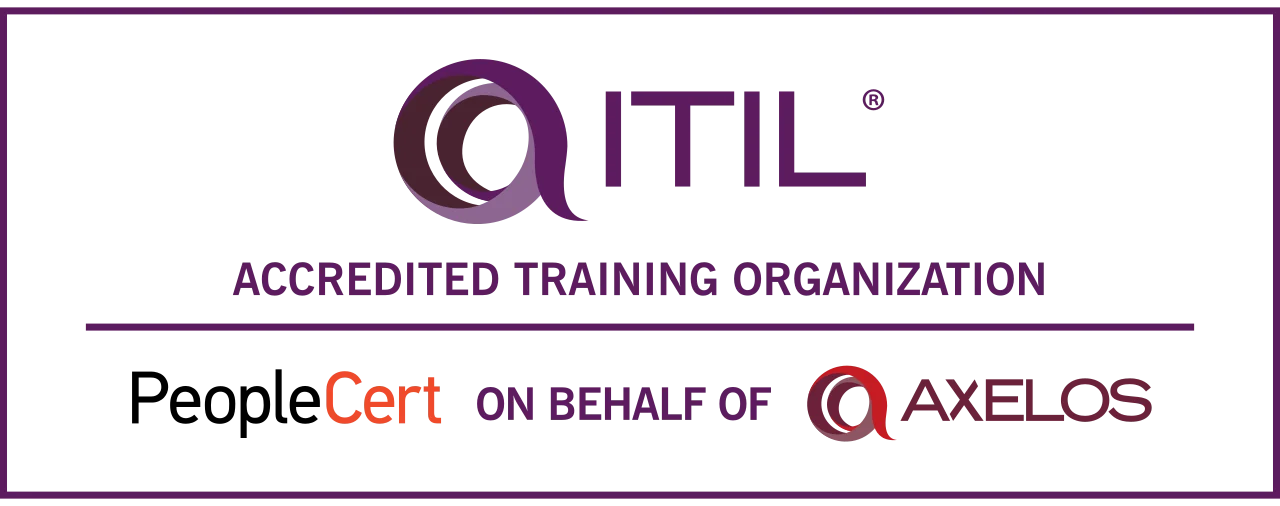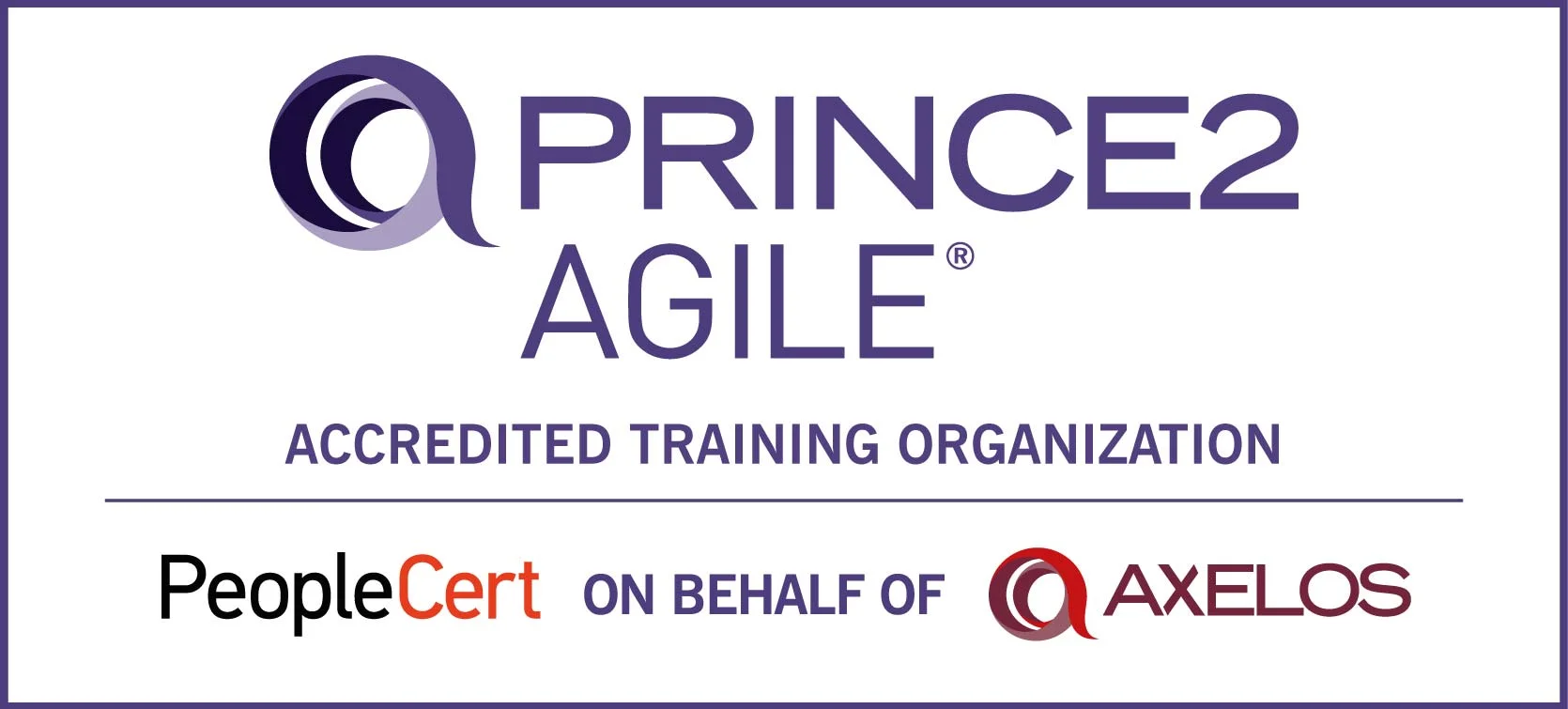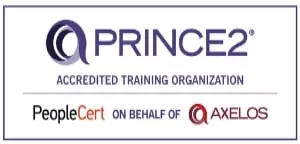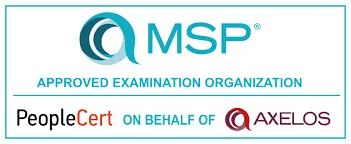- What is ISO Certification?
- Who Can Implement This Standard?
- Who is an ISO Lead Auditor and What’s Their Role?
- Lead Auditor Certification Cost
- How to Achieve ISO Certification: Step-by-Step
- Benefits of Becoming an ISO Lead Auditor
- Preparation Guide for ISO Lead Auditor Certification
- Common Challenges and How to Overcome Them
- Conclusion
- Next Step:
The process of ISO 22301 certification is essential for businesses that want to ensure resilience, operational continuity, and preparedness against disruptions. This certification proves an organization’s compliance with the international standard for Business Continuity Management Systems (BCMS), which helps businesses manage risks and stay operational during disruptions. Let’s explore what this certification process entails, how it can help your business stay secure and resilient, and what is the role of an Lead Auditor?
What is ISO Certification?
The certification is a formal acknowledgment that a business has met the international standards for business continuity management. It involves complying with specific requirements that help businesses prepare for, respond to, and recover from various operational disruptions, such as natural disasters, IT failures, or other crises. The certification process ensures that your business is capable of maintaining essential functions in the face of unexpected disruptions.
Check Out: A comprehensive article explaining all aspects of ISO Standard.
Benefits of Certification
- Risk Management: It helps identify potential risks and implement strategies to mitigate them.
- Customer Trust: Customers gain confidence knowing your business can remain operational during disruptions.
- Compliance: It ensures compliance with regulatory requirements, which is critical for certain industries like finance and healthcare.
Who Can Implement This Standard?
The process of ISO 22301 is applicable to businesses across various industries, ensuring that organizations of any size, whether small businesses or large corporations, can benefit from its implementation. Here’s a quick look at industries and sectors that commonly adopt:
- IT and Technology: Protects critical IT infrastructure from service disruptions.
- Finance: Helps maintain financial operations during crises, safeguarding sensitive financial data.
- Healthcare: Ensures continuous patient care and data management even during emergencies.
- Manufacturing: Protects production lines and supply chains from disruptions.
Organizations may adopt ISO for different reasons. For some, it’s a regulatory requirement. For others, customer demand or internal governance might trigger the adoption. Regardless of the reason, the certification process can make a significant difference in how businesses prepare for the unexpected.
Who is an ISO Lead Auditor and What’s Their Role?
A Lead Auditor is the professional who oversees audits of an organization’s BCMS to ensure compliance with ISO standards. Their role is central to the audit procedure, as they evaluate whether processes meet the required guidelines and help organizations identify areas for improvement.
Key Responsibilities
- Plan and execute audits from start to finish.
- Assess the effectiveness of business continuity processes.
- Report findings, suggest improvements, and guide the organization toward compliance.
- Maintain impartiality while ensuring thorough evaluation.
Lead Auditors are the backbone of the certification lifecycle, ensuring that certification is not just a document but a reflection of actual operational resilience.
ISO 22301 Lead Auditor Roadmap
Follow a proven path to certification and unlock roles at top firms like Deloitte, PwC, IBM & KPMG.
Lead Auditor Certification Cost
Costs can vary widely depending on the region and training provider. Typical factors include:
- Training provider: Accredited providers often charge a premium for quality instruction.
- Location: Online or virtual training may reduce costs compared to in-person sessions.
- Exam fees: Included in the package or separate, depending on the provider.
- Re-certification: Maintaining credentials may involve additional costs.
How to Achieve ISO Certification: Step-by-Step
Here’s a practical roadmap for aspiring Lead Auditors and organizations:
Step 1: Understand the standard requirements: Familiarize yourself with ISO clauses, BCMS concepts, and organizational context.
Step 2: Choose an accredited training provider: Select a recognized institute like NovelVista for structured training aligned with real-world audits.
Step 3: Attend Lead Auditor training: Gain in-depth knowledge of auditing techniques, BCMS processes, and audit procedures.
Step 4: Attempt and pass the exam: Complete the formal assessment to validate your understanding and auditing competency.
Step 5: Gain auditing experience & apply certification: Hands-on experience is critical. Participate in mock audits or real-world BCMS evaluations.
Step 6: Continuous professional development: Stay updated with ISO updates, attend workshops, and refine auditing skills to maintain certification relevance.
Following these steps ensures you complete the ISO certification process efficiently while gaining practical insights.
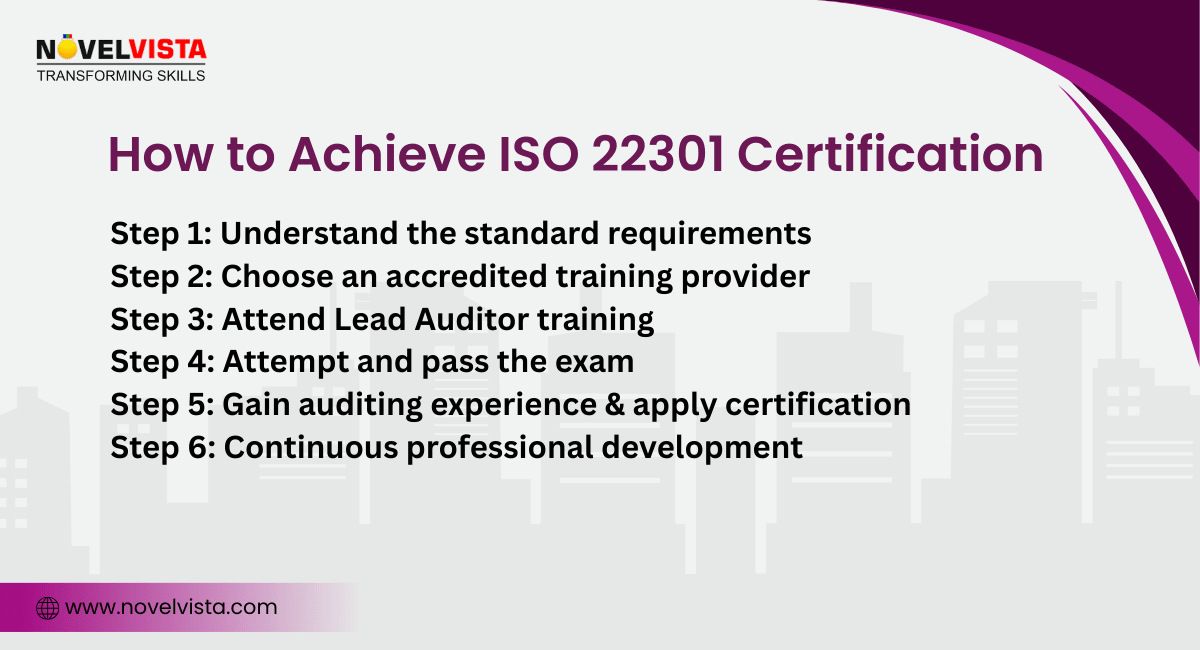
Benefits of Becoming an ISO Lead Auditor
Being certified as a Lead Auditor brings multiple advantages:
- Career growth & global recognition: Open doors to consulting, auditing, and leadership roles worldwide.
- Higher earning potential: Certified auditors are in high demand, often commanding premium salaries.
- Ability to consult & audit worldwide: Work with diverse organizations across sectors.
- Contribution to organizational resilience: Directly impacts how companies prepare for and respond to disruptions.
Preparation Guide for ISO Lead Auditor Certification
Proper preparation can make the certification process smoother and boost your chances of success. Here’s how to get ready:
- Study materials: Start with the ISO standard itself. Supplement with audit manuals, BCMS guides, and practical case studies.
- Training formats: Choose what works best, classroom sessions, virtual instructor-led courses, or self-paced online modules. NovelVista offers all three.
- Practice exams & mock audits: Simulate real audit scenarios to familiarize yourself with the ISO audit procedure.
- Time management & study plan: Break your preparation into focused modules, balancing work and study. Regular revision is key.
Consistent preparation ensures you not only pass the exam but also become a confident auditor capable of executing audits effectively.
Common Challenges and How to Overcome Them
Even with training, candidates often face hurdles in the certification lifecycle. Here’s how to tackle them:
- Complex audit requirements: audits cover multiple layers of business continuity. Solution: Practice with real-life case studies and scenarios.
- Lack of real-world exposure: Theory alone isn’t enough. Solution: Participate in mock audits and shadow experienced auditors.
- Balancing work & study: Many candidates juggle job responsibilities. Solution: Create a structured learning schedule and stick to short, consistent study sessions.
Overcoming these challenges builds not just knowledge but practical confidence, preparing you for real-world audits.
Conclusion
The certification process is a powerful way to build expertise in business continuity and auditing. Becoming a Lead Auditor opens doors to global career opportunities, allows you to guide organizations in resilience, and positions you as a trusted professional in risk management. Whether you’re a professional seeking career growth or an organization aiming for BCMS excellence, ISO 22301 certification is a smart move.
Next Step:
Take the next step in your career with NovelVista’s ISO 22301 Lead Auditor training. Gain practical knowledge on audit procedure, understand the BCMS certification process, and learn how to guide organizations through the certification lifecycle.
With expert trainers, real-world case studies, and exam-focused guidance, you’ll be fully prepared to pass the certification and apply your skills immediately. Whether you aim to audit, consult, or strengthen organizational resilience, this program equips you for success.
Join today and become a certified Lead Auditor, empowering businesses and advancing your professional journey.
Frequently Asked Questions
Author Details

Akshad Modi
AI Architect
An AI Architect plays a crucial role in designing scalable AI solutions, integrating machine learning and advanced technologies to solve business challenges and drive innovation in digital transformation strategies.
Course Related To This blog
ISO 22301:2019 Lead Auditor
Confused About Certification?
Get Free Consultation Call

